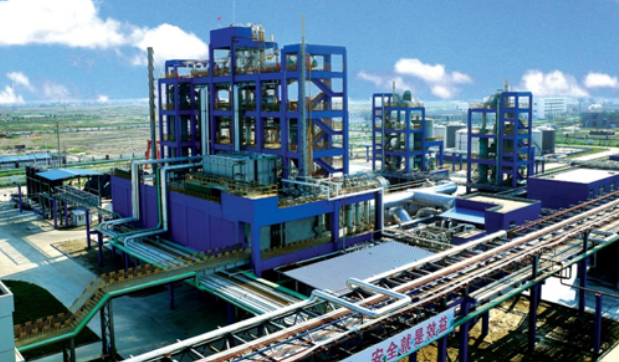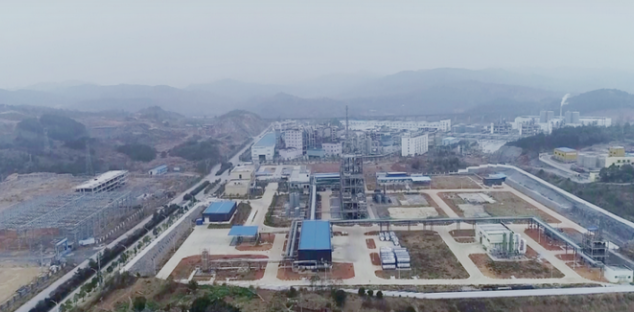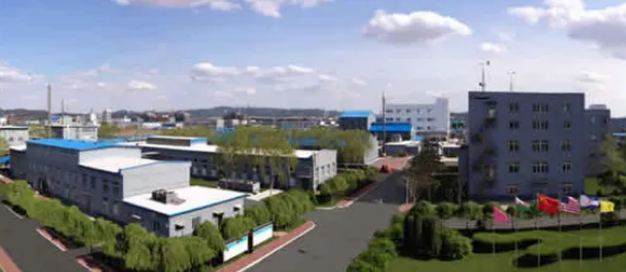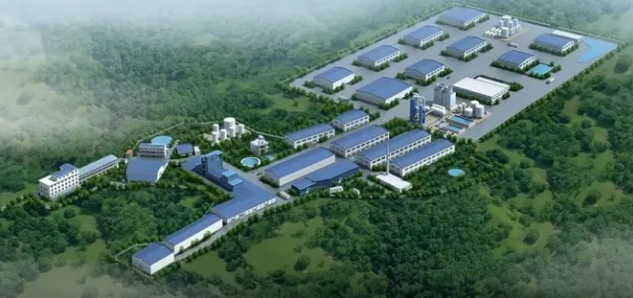The direction of chemical intelligent manufacturing | artificial intelligence is not reliable
In the past two years, due to the outstanding performance of artificial intelligence in some fields (not industrial fields), some people have begun to be optimistic that China is overtaking the curve of manufacturing and industrialization through "Internet +" and artificial intelligence. Can there really be such optimism?
In 2007, when I was writing my doctoral thesis, the first sentence of the first chapter of the introduction was, "In the Report of the 16th National Congress (2002), it was clearly proposed that 'industrialization is driven by informatization, and industrialization is promoted by informatization'." Later, the 17th National Congress (2007) put forward: "industrialization and information integration"; For this two, the state also set up the "Ministry of Industry and Information Technology" in 2008, indicating that the state has a deep understanding of and attention to this development strategy. Later, the 18th National Congress (2012) proposed: "the deep integration of the two". Until now, in the upsurge of intelligent manufacturing, the integration of the two is still the "foundation" of the Ministry of Industry and Information Technology. More than a decade has passed, but the two reforms are still being mentioned, which shows that this matter is not easy, and the progress is not as smooth as the Government thinks.
At present, there is a lot of talk about intelligent manufacturing in the discrete industry, but there is little talk about intelligent manufacturing in the chemical industry. So, chemical intelligent manufacturing, in which direction is it developing?

Chemicals are already on the automation fast track
The chemical industry has long realized the primary intelligent system - automated control. Due to the continuity of the chemical process and the large-scale of the device, and the huge investment in the device (billions of dollars of investment), the chemical industry (including oil refining, petrochemical) has long put forward very high requirements for process automation, and began to use DCS for process control in the 1970s. Automation improves the stability and safety of chemical production, and it is also easy to increase the profit margin of the factory (increasing profits is the direct motivation for enterprises to adopt new technologies in the market economy environment). The current level of technology can make more than 80% of the production workshops and operations of chemical production unmanned, mainly in some of the processing and transportation of solids to achieve automation is more difficult. Large chemical equipment production workshop unmanned is a normal phenomenon, relying on pumps, compressors to achieve the flow of materials in the closed pipeline system, relying on a variety of temperature, pressure, liquid level, flow control to achieve the automatic operation of matter and energy in each operating unit.
Technically feasible or optimal, does not mean the best economic benefits. In particular, some small devices, completely using automatic control system system unit cost is high; When labor costs are low, manual operation is preferred. Therefore, the automation rate of the chemical industry in the real world is determined by the technical level and economic benefit (investment cost, labor cost).
Traditional AI is not suitable for the chemical industry
The core of traditional artificial intelligence (big data, machine learning) is to summarize and extract rules from historical data, so as to predict the future. Its theoretical basis is that the running data contains all the important hidden information of the system, and the rules and knowledge of the system can be mined directly from the data without studying the mechanism of the problem.

This kind of artificial intelligence is not suitable for the chemical industry, and the intelligent production of the chemical industry is extremely limited. For three reasons:
1. The operation mechanism and mathematical model of chemical plant are relatively complete. Chemical engineering, as an engineering discipline with more than 100 years of development, has a relatively complete knowledge system. Chemical plant as a manual design system, the designer has been clear about the inherent characteristics and mechanism of the device when designing, and has known the mathematical model of the device. So there is no need to use artificial intelligence to mine and discover knowledge. Even when the mechanism is unclear or the boundary is uncertain, some conventional and traditional data analysis methods are sufficient to deal with the problems in chemical industry.
2. As a strictly controlled system, chemical equipment has a lot of data but monotonous, and the information is too low to mine knowledge. Because the chemical process is strictly controlled by various control systems and the production is stable, the data generated is a lot but the distribution is narrow, and it is impossible to use artificial intelligence to extract rules or knowledge from this big data with little information. 100 or 10,000 identical pieces of data contain the same amount of information as one piece of data.
3. Chemical devices do not accept the black box knowledge generated by artificial intelligence systems for the reliability and safety requirements of the system. Chemical production on the safety and reliability of the requirements are extremely strict, in case of accidents are catastrophic, the loss of the environment and staff life is irreversible. Artificial intelligence relies entirely on the input and output data of the system to produce a black box model. When this black box model is applied, it is not possible to find the cause of the fault or problem according to the model, and it is difficult to evaluate the reliability of the model.
Traditional artificial intelligence is more suitable for the system is extremely complex (so difficult to study the mechanism), the system causality and reliability of the human intellectual activities, such as finance, business, medicine, artificial intelligence will have a revolutionary change in these fields, these changes are really happening around us. While the field of science and technology is essentially the pursuit of causality and reliability, scientists and engineers have long attached importance to and applied data, and the degree of change of artificial intelligence to science and technology will be limited from the perspective of knowledge discovery and extraction.

Knowledge automation is the main direction
Chemical engineering, as a typical engineering discipline, is characterized by half theory and half experiment. Because some phenomena are too complex, involving machinery, materials, physics, chemistry, thermodynamics, kinetics and transmission, and a variety of factors are linked together, the cause or conclusion of some phenomena cannot be derived through pure theoretical logic, and various factors need to be separated and studied independently in the laboratory environment (thorough research method). Or take it all together and just look at the main factors that affect the results. In other words, most of the theoretical knowledge of chemical engineering comes from laboratory research.
To take a simple example, for example, for a new set of binary systems, without vapor-liquid equilibrium experimental data, what model dares to say that its prediction accuracy is within 5%? Although there are already millions of experimental data sets of binary vapor-liquid equilibrium in chemical literature and databases, chemical thermodynamicists have studied vapor-liquid equilibrium prediction models for nearly 50 years, but once they encounter critical applications, they still have to go to the laboratory to do experiments to obtain experimental data.
Due to the complexity of chemical phenomena, some phenomena show different characteristics on industrial devices and laboratory experimental devices, and even the phenomenon that cannot be observed in the laboratory, that is, the so-called "amplification effect", the essence of which is not clear about some factors leading to no correct prediction. At this point, we can get feedback from industrial plants to expand our knowledge of chemical engineering. In addition, from the operation of industrial plants, you can also get a lot of empirical knowledge about operation, maintenance, safety, beyond the scope of laboratory research.
Although the chemical industry is not a good image in China, nor is it a good major in universities, its discipline knowledge structure and research methods are more complex, and chemical engineering is a top-earning major in engineering disciplines in Europe and the United States.
Turning experience into data, turning data into knowledge, and integrating knowledge into automated systems is knowledge automation, which is the core of intelligent manufacturing.
It can be seen that the process mechanism knowledge of a chemical plant has been basically integrated into the initial design and automatic control of operation, and more than 80% of the knowledge has been automated; Plant operation knowledge, which mainly involves personnel management, asset and equipment management, operation, maintenance, and supply chain knowledge, still exists in various Sops and exists in the human brain as experience, which is still far from knowledge automation.
Knowledge automation is the key direction of informatization and intelligence in the chemical industry in the future.

What can be done
So what can knowledge automation and smart manufacturing in the chemical industry really do?
The production process is the core of a chemical enterprise, the digital, automation and intelligence of the production process of the chemical industry is at the forefront of the entire industrial system, and basically has realized the unmanned production of the workshop, but the central control room is still sitting people, observing and monitoring the production process through the computer screen, ready to manual remote intervention or even on-site intervention. In fact, the quality of our final products is not static and very stable, and the utilization rate of raw materials and energy utilization in the production process is not the best. A chemical device is not automated, unmanned even if the goal of intelligent manufacturing is achieved, the new goal is not to meet the stability of the system in a state, but to make the device system automatically run under the safety of the device, product quality constraints, raw materials, energy, asset utilization of the optimal state. Multi-product fine chemical plants also need to be agile and flexible to quickly respond to market changes and order requirements.
The architecture of "intelligent manufacturing" in the petrochemical industry has long been determined, that is, to realize knowledge automation and intelligence at the three levels of process control, production management, and operation management, corresponding to the process control system (PCS), production execution system (MES), and enterprise resource planning (ERP).
Process control system (PCS) : An automatic control system, represented by DCS and PLC, including advanced process control APC, that characterizes the parameters of the production process as controlled quantities close to a given value or kept within a given range.
Enterprise resource planning (ERP) is an effective and comprehensive planning and management of enterprise resources, including product ordering, raw material procurement, distribution, sales, accounting and a series of business flows, represented by SAP.
Production process execution management system (MES) : as the interface between DCS and MES, to achieve the integration of production performance management and operation data, the functional modules include short-term production planning, job scheduling and scheduling (APS), maintenance management, technical information management, online real-time optimization RTO, product quality management LIMS.
No matter at what level, to let the computer to solve the problem, you need to digitize the problem and abstract it into a mathematical model, so the core of intelligence is five :" digitalization, visualization, modeling, automation, integration." Only by digitizing experience and information through detection technology, finding rules through data visualization analysis, and then transforming the rules into mathematical models, and then automatically solving and making decisions through computers on mathematical models, automatically transmitting decisions or conclusions to the upper or lower layers, thus achieving integration. This complete process is knowledge automation, which frees people from repetitive work and focuses on innovative and high value-added activities, obviously it has become more demanding for talents.

It's a long way to go
The monitoring and pre-maintenance of dynamic equipment is one of the few feasible applications of big data technology in the chemical industry. It needs to develop technologies: First, new sensing technology: vibration, sound, image, current and other signals are integrated into the monitoring model, and a key feature signal can replace dozens of weakly correlated signals. The biggest achievement of artificial intelligence technology based on big data is the processing and recognition of sound and images, and the application of these two types of signals in industry is still relatively small, and it is time to apply them. The second is signal processing methods and algorithms: how to associate signal phenomena with fault types requires the use of advanced pattern recognition technology.
But even so, there is still a great difficulty in copying similar industries, and it cannot be simply transplanted.
One is because of the input and output ratio of various intelligent manufacturing systems. A major investment in intelligent manufacturing is software at all levels, a feature of software investment is that it is almost irrelevant to the size of the device, the price of a set of software will not change with the size of the device, but the benefits generated are basically proportional to the size of the device, so it seems that the investment income of the software system also exists almost linear scale effects. Smes must use low-cost software systems suitable for smes. Second, in addition to PCS direct and pure equipment communication, ERP and MES have more interfaces with people, and involve the management culture of the enterprise. The application of the system involves the change of management and culture, or the system is customized according to the management culture of the enterprise.

Postscript: The right way is under foot, not in the sky
Although the concept of artificial intelligence is very hot right now, with countless stories and investments, the impact on the chemical industry (and by extension, the process industry) can be considered largely negligible. To talk about intelligent manufacturing in the chemical industry, it is not to rely on artificial intelligence based on big data, but to rely on the digitalization and automation of knowledge and experience. The framework of "intelligent manufacturing" in the petrochemical industry has long been determined, which is to realize knowledge automation and intelligence through PCS, MES and ERP at the three levels of process control, production management and operation management, which is a reliable way.
- ABB
- General Electric
- EMERSON
- Honeywell
- HIMA
- ALSTOM
- Rolls-Royce
- MOTOROLA
- Rockwell
- Siemens
- Woodward
- YOKOGAWA
- FOXBORO
- KOLLMORGEN
- MOOG
- KB
- YAMAHA
- BENDER
- TEKTRONIX
- Westinghouse
- AMAT
- AB
- XYCOM
- Yaskawa
- B&R
- Schneider
- Kongsberg
- NI
- WATLOW
- ProSoft
- SEW
- ADVANCED
- Reliance
- TRICONEX
- METSO
- MAN
- Advantest
- STUDER
- KONGSBERG
- DANAHER MOTION
- Bently
- Galil
- EATON
- MOLEX
- DEIF
- B&W
- ZYGO
- Aerotech
- DANFOSS
- Beijer
- Moxa
- Rexroth
- Johnson
- WAGO
- TOSHIBA
- BMCM
- SMC
- HITACHI
- HIRSCHMANN
- Application field
- XP POWER
- CTI
- TRICON
- STOBER
- Thinklogical
- Horner Automation
- Meggitt
- Fanuc
- Baldor
- SHINKAWA
- Other Brands




































































































































